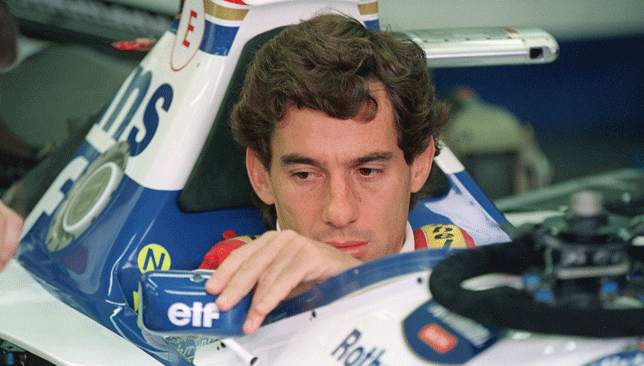Ayrton Senna: Racing for the Heart of a Nation
Few athletes have ever transcended their sport to become a symbol of hope and inspiration for an entire nation. Ayrton Senna, the Brazilian Formula 1 legend, was one such figure. Known for his unparalleled skill on the racetrack and his deep connection to his homeland, Senna’s journey was more than just a tale of speed and success; it was a story of passion, resilience, and national pride.

The Rise of a Star
Born on March 21, 1960, in São Paulo, Ayrton Senna da Silva discovered his love for racing at an early age. He began karting at the age of four, and by the time he entered professional motorsport, his talent was undeniable. Senna’s meteoric rise through the ranks of Formula Ford and Formula 3 showcased his relentless determination and extraordinary ability to push the limits of his vehicles.
In 1984, Senna made his Formula 1 debut with the Toleman team. It didn’t take long for the world to take notice. His remarkable performance at the Monaco Grand Prix that year, where he almost won under torrential rain, was a testament to his skill and fearlessness. It was a preview of the greatness that was to come.
Dominance and Legacy
Senna’s career truly flourished when he joined McLaren in 1988. Partnered with Alain Prost, one of the sport’s most accomplished drivers, Senna quickly established himself as a force to be reckoned with. The rivalry between the two became one of the most iconic in Formula 1 history, pushing Senna to new heights.
Between 1988 and 1993, Senna claimed three World Championships and 41 Grand Prix victories. His ability to extract performance from a car, especially in challenging conditions, was unmatched. Known as the “Master of Monaco,” Senna won the prestigious race six times, a record that still stands today.

Racing for Brazil
While Senna’s achievements on the track were extraordinary, it was his impact off the track that solidified his status as a national hero. In the 1980s and 1990s, Brazil was grappling with economic difficulties and political instability. For many Brazilians, Senna represented hope and pride, a reminder that greatness could emerge even in challenging times.
Every race was more than just a competition; it was a chance for Senna to unite his country. When he stood on the podium with the Brazilian flag, it was a moment of collective celebration for millions. His emotional victory at the 1991 Brazilian Grand Prix, where he overcame severe mechanical issues to win in front of his home crowd, epitomized his unwavering dedication to his people.
A Tragic Loss
On May 1, 1994, the world was shocked by Senna’s fatal crash at the San Marino Grand Prix. His death at the age of 34 sent ripples through the motorsport community and beyond. In Brazil, the nation mourned the loss of a beloved icon. More than three million people lined the streets of São Paulo for his funeral, a testament to the profound impact he had on his country.

A Legacy That Lives On
Even decades after his passing, Ayrton Senna’s legacy endures. The Instituto Ayrton Senna, founded in his honor, has helped improve education for millions of children in Brazil. His achievements continue to inspire new generations of drivers, and his name remains synonymous with excellence and determination.
Ayrton Senna was more than just a Formula 1 driver; he was a symbol of Brazil’s spirit and resilience. Through his talent, humility, and love for his country, he raced not just for victories but for the heart of a nation. His story is a reminder of the power of passion and the enduring impact one individual can have on the world.












Post Comment